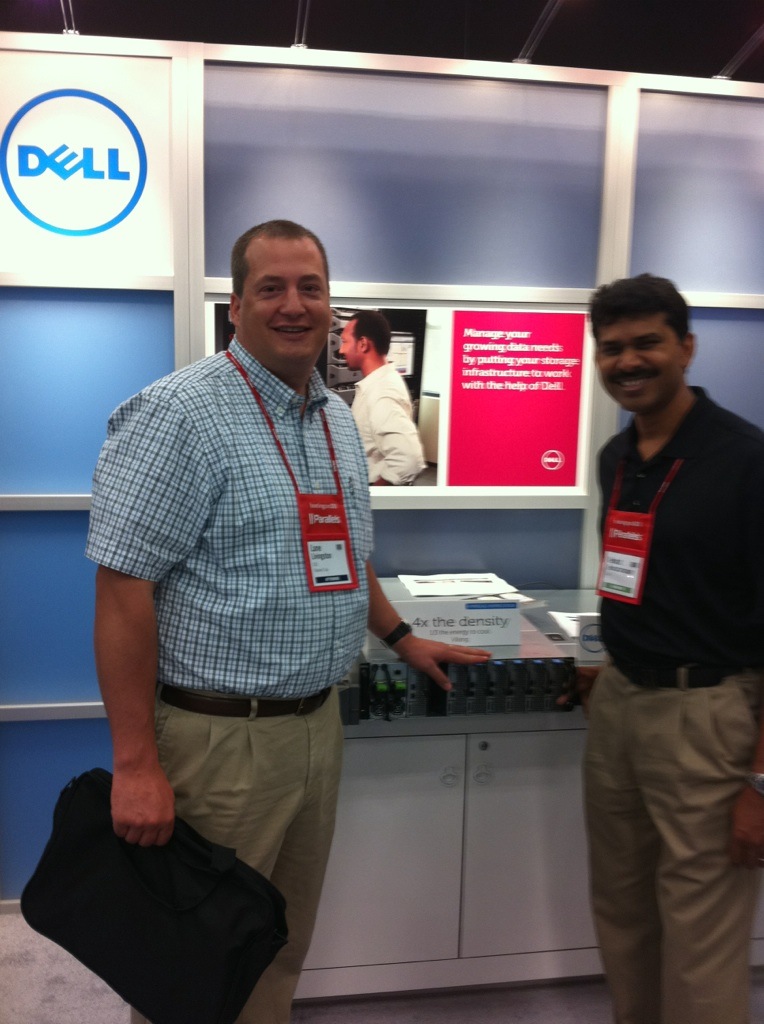When Your Growing Enterprise Needs Some Room to Breathe,
It’s Time to Consider the Cloud
You’ve never been one to follow the crowd and until now, “cloud” was only a buzz word on the Internet, destined to be “just another fad” like that aptly named Twitter site you’d also heard so much about several seasons ago. But now you’ve seen Twitter-mania reach pandemic proportions, and you’ve started to wonder: “Could there be more to this Cloud than I thought?”
Actually, there is, and I can give you at least ten good reasons why you should give the Cloud a second look.
Reason #1: The Cloud is Here to Stay
The act of clustering the processing capabilities of multiple computers to amass a single, virtualized instance is not a new idea, or even considered an emerging technology. It’s been around for a while and is, essentially, the barebones formula of the Cloud.
Software as a Service (SaaS) and Infrastructure as a Service (IaaS) are also highly utilized models in the tech world today, and Cloud-products are tailored to consumers in this familiar, proven format. Even the payment structure that accompanies most Cloud products, a pay-as-you-go or subscription-based model, is one that most consumers prefer over the alternatives and is a favorite marketing angle of Cloud promoters.
Essentially, the Cloud, as a stand-alone service, is the packaged, price-stamped, and perfected product of a time-tested technology that was created to provide rapid and elastic solutions to issues in website scalability and performance. There is nothing covertly experimental or uncertain about it and it is here to stay.
Reason #2: There for You When the Ability to Scale is Key
The requirements of scale are all relative to your goals for the applications you are hosting. Commercially, it would be safe to say that website hosting on the Cloud is the norm for most consumers who utilize its trademark scalability features. For e-commerce sites, scalability is critical to accommodate traffic spikes, which can potentially impede processing performance or put an entire website out of commission if the site’s hosting platform is ill-equipped to handle them. The result is frustrated clients and lost sales.
The key to a scalable Cloud is its ability to rapidly deploy server instances as they are needed, and then release them when they are not. That is the defining point of the Cloud, and, theoretically, any cloud computing platform can claim to offer a limitless reserve of instances. Cloud providers, however, can reasonably be limited by the reliability, redundancy, and scalability of their own internal resources and technology. As with any product or service, the quality of the manufacturer will affect the quality of its product.
Reason #3: The Option of Pay-As-You-Go Pricing
For companies looking to reform areas of their businesses prone to wasteful spending, cloud computing is a viable option. Contrary to alternative hosting methods that require large upfront expenditures to maintain, the Cloud makes it possible to establish ongoing operational costs that are proportionate to actual usage. In addition to increased reliability, you will also avoid paying for coverage that you’re not using, which will eventually produce exponential savings.
Of course, every consumer or business has different needs and will enter a Cloud environment with varying expectations, goals, and requirements in terms of processing volume and budget. Cloud providers will often work with you to either customize or match you with a plan that will economically justify migration to the Cloud.
Reason #4: Fundamentally Efficient
The old adage “waste not, want not” comes to mind when you consider the formulaic efficiency of the Cloud. The pervasive theme of cloud computing is conservation; conservation of time, resources, and funds. It is designed to facilitate seamless elasticity while actually minimizing the amount of processing resources devoted to making your application run.
Visually, it is the difference between filling a balloon with water and pouring water into a gallon jug. The price of the balloon will start out low and rise as it expands, while the price of the jug is comparatively higher and fixed. You will pay the same price for the jug whether it is a third full or near the brim, and when it begins to overflow, you are out of luck.
Long and short: with the Cloud, you’re not paying for what you don’t use, while never compromising on the promise of uptime. If a server fails (or your balloon pops), simply fire up a new one and get on with your day.
Reason #5: Pricelessly Convenient
The convenience of cloud computing correlates naturally with its efficiency. Because the architecture of the Cloud allows bandwidth to be commensurate to traffic on a continual basis, developers are no longer commandeered by the demands of peak loads and traffic spikes. Instead of re-engineering platforms to ensure uptime, they can refocus their resources in other, previously neglected areas.
Likewise, businesses can create an invaluable buffer between their day-to-day operations and the technologies that keep them online, granting themselves both breathing room and the confidence they need to focus on the success of their company.
Reason #6: Evolving but Reliable Security Options
Of all the reasons why a company would consider employing some form of cloud-based service (and we’ve covered at least four so far) there is still one issue that remains a subject of real concern: security. Concern over security in the Cloud is the number one cited reason why corporate data center managers would choose the alternative. Yet, sales in the cloud continue to abound, overtaking those of traditional hosting by at least five times, say investment banking and securities firms Goldman Sachs and Piper Jaffray. Why?
The answer could be that many of these cloud-consumers have discovered how to secure their data outside of their own internal firewalls. As Cloud popularity increases, so are the options for security within its unique parameters. Some of these options include:
- File-folder encryption (grants exclusive access to specific data and encrypts all files while in the cloud)
- Ensuring provider: 1) has gained recognized certifications (such as: PCI DSS, SAS 70, ISO 27001, or NIST) 2) isolates server hardware 3) equips data center with security alarms, cameras and bio-metric access controls 4) wipes servers after customer resources are released back to the cloud
- MPLS isolation of networks in addition to encryption
- Ability to transfer personal IPs to restrict access to your cloud instances
- Cloud-enabled temporary firewalls for individual instances
- On-premise clouds or Virtual Private Clouds (enables user to maintain more hands-on control of security)
Another valuable option that enables users to maintain a comfortable level of control, while still accessing the cost-effective benefits of the Cloud, is the option to create your own hybrid solution that combines both the familiarity of the old methods with the best of the new.
Reason #7: The Customizable Hybrid Option
What is a hybrid cloud exactly? As the name implies, it is the strategic medium of two data management tools, where one is chiefly in-house and the other external (i.e., the Cloud). While an organization might choose to use a public cloud for general computing purposes, it may also choose to store vital customer (or company) data on a dedicated server. But the possibilities for customization don’t end there.
The hybrid option is an attractive model for a variety of reasons, especially for large enterprises that have already committed significant expense to an established infrastructure. In addition to the option of maintaining physical control and supervision of onsite data, another reason why a company would choose a hybrid cloud is the simple advisability of incrementally adopting cloud-based services rather than committing to a total transition in one fell swoop.
In fact, it is a mistake to think that the Cloud is meant to be catchall for a single company’s every hosting need. Legitimate providers will tell you that the Cloud is best served as a complement to your current hosting methods, and will offer—even recommend—hybrid solutions that can be customized to suit your needs and goals.
Reason #8: Diversifies Your Hosting Portfolio
As the next step in hosting innovation, the Cloud is by no means destined to be the last, and it represents a valuable addition to your IT toolbox. Just like any other toolbox, this one is only as good as the variety of tools inside it.
Reason #9: It’s The Cutting Edge
The internet is an evolving and dynamic instrument that will never fall stagnant, and neither will the methods of operating within its parameters. It’s an increasingly apparent truth that organizations do themselves a disservice by not exploring, or at least investigating, emerging technologies, and the same is true of the Cloud.
The potential result is missed opportunities for growth, exposure, and savings.
Reason #10: Opportune Time
There is no better time than now to explore your options in the Cloud. As providers compete to get a leg up in a flourishing market, end users can take their pick of pricing and packages. The tricky part will be navigating the disparities of service and value to find the provider that will become a long-term partner you can trust.
As you begin your journey, do so with these considerations:
- Is the provider certified in the standard regulations (i.e., PCI DSS, SAS 70, etc.)?
- How long has the provider offered cloud products? What do current clients say about their service?
- Is the level of technical support sufficient for your needs? Does support require additional cost that you are willing to pay?
- Does the provider offer hybrid solutions or claim to offer all-in-one cloud solutions? Are they willing to customize a plan for you?
- Does the provider offer contract-based services, subscription, month-to-month, or pay-as-you-go?
Depending on your needs, you might also ask about discounts, trial periods, or the option of mobile access to the Cloud. Once you decide on a provider, the benefits of the Cloud should be immediate and well worth the time invested in exploring your options.

